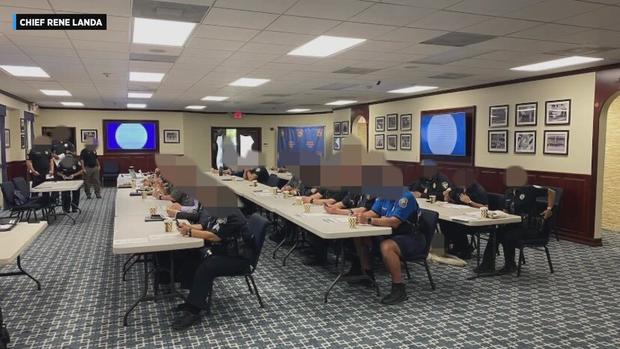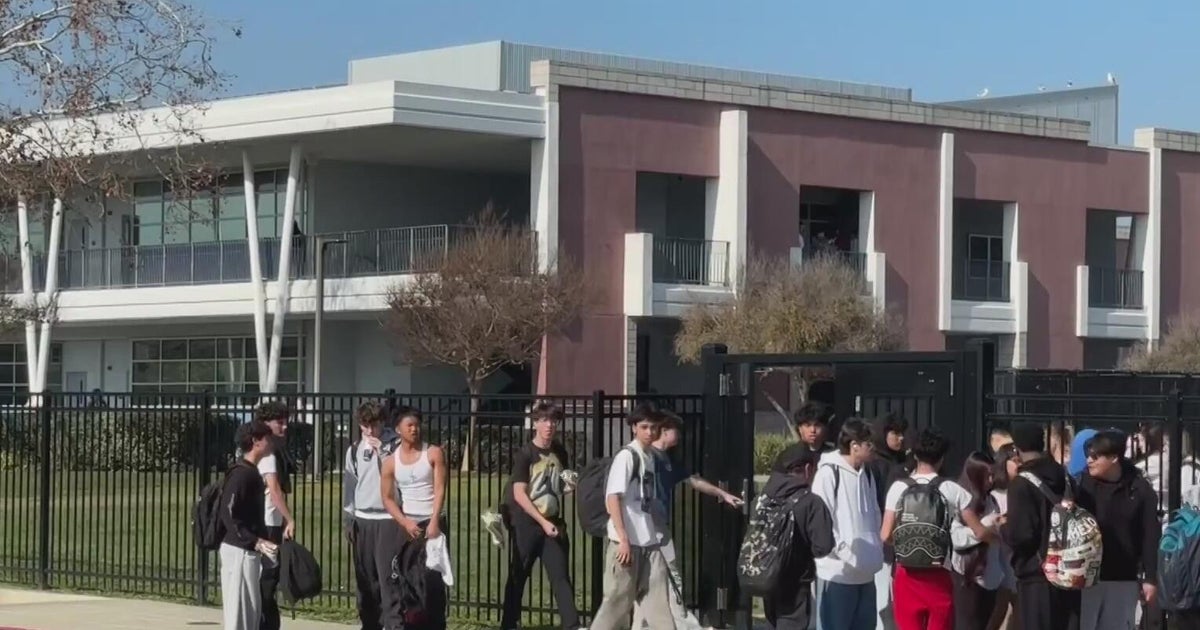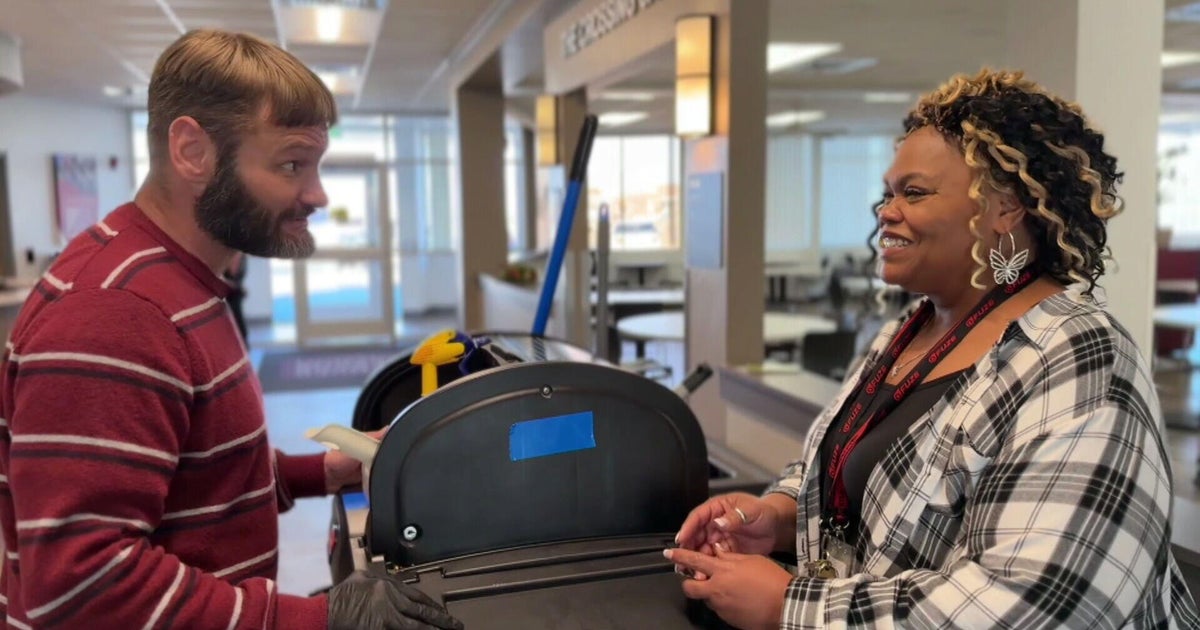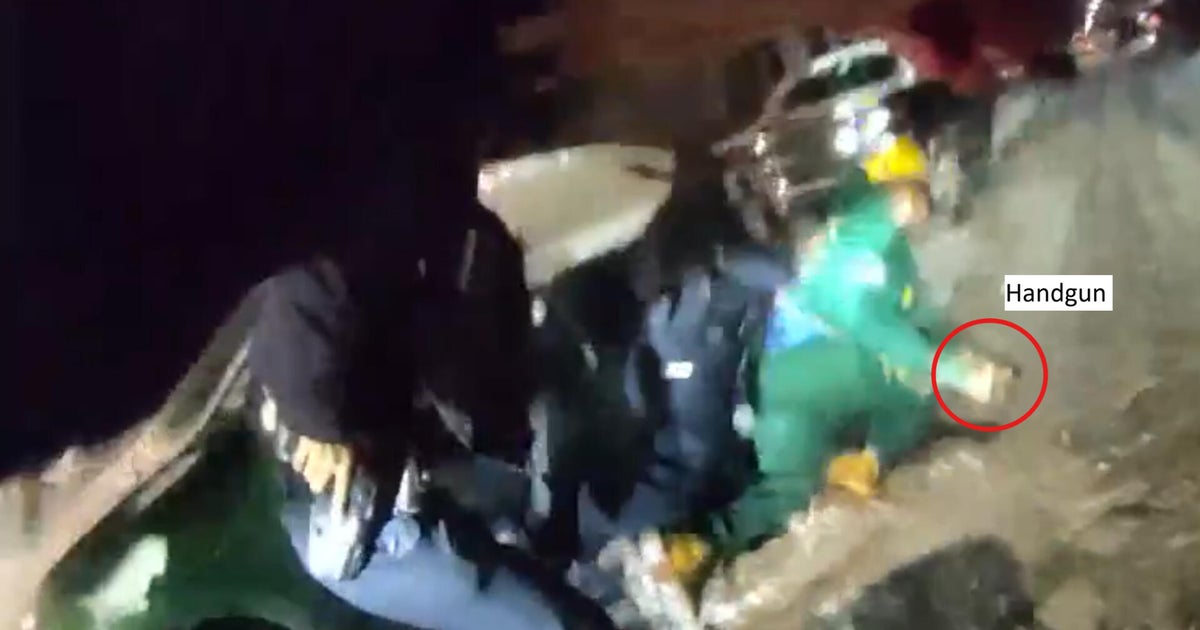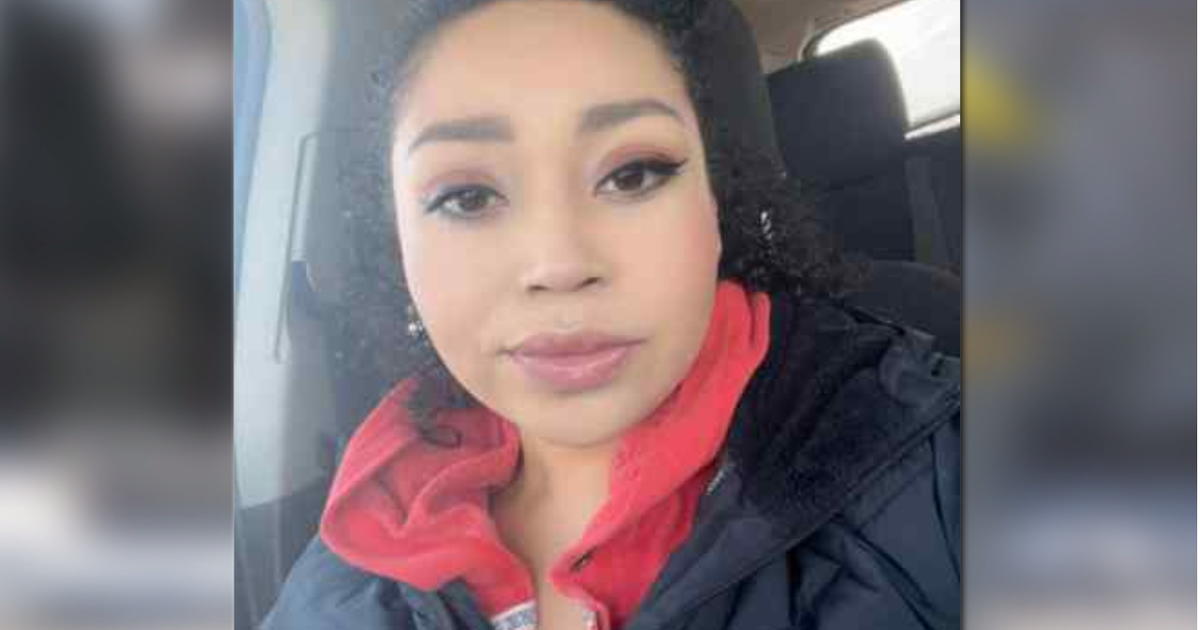'To Police Well, You Have To Be Well Yourself:' Program Addresses Officer Mental Health
MIAMI (CBSMiami) – "To police well, you have to be well yourself," says South Miami Police Chief Rene Landa.
When he took over as President for the Miami-Dade Association of Chiefs of Police, he wanted to address something, he says, is not talked about enough in their profession: officer mental wellness.
In light of National Police Week and Mental Health Awareness Month, Chief Landa spoke with CBS4 about the initiative.
"Life is a struggle. We all have our things, but I put the uniform on, and pin on my badge, and now, I'm not only struggling myself, but I am taking on your struggles when we respond to calls and people tell us the things that they're going through," he explains.
That is why last September, he helped launch a program called "Struggle Well." He did this in partnership with Boulder Crest, which helps veterans navigate PTSD, to develop curriculum geared specifically for law enforcement.
"I've been honored to do this profession, and I love it and I am happy about it, for 42 years," says Chief Landa. "And I have to say, I've never seen officers open up like they are. You know, we've never been permitted to do that. It's a profession where you don't wear your heart out on your sleeve."
It is free for all 37 departments in the county, due to funding from AT&T FirstNet philanthropy. One-thousand officers and dispatchers have been through it so far. The five-day sessions take place monthly, and, since launching, each class has been filled.
Sgt. Christopher Johnson, who has been with the department for 13 years, says he remembers the moment everything seemed to catch up with him.
"I lost a family member and was called out to a scene of the exact same thing of how my family member passed away," he recounts. "You have to understand that we're human too, and, even though we're trained to hold things back, we can't all the time. And when I saw that, images of what happened to my family member hit me. I started hyperventilating. My hand was shaking."
He says he was able to navigate those emotions through Struggle Well and learned tools to help him be more present with family.
"We are trained to be very hypervigilant, hyper focused, have situational awareness at all times, constantly looking for threats and things like that, and that can be both a superpower and a detriment," he explains. "Because, rather than being with your family out at dinner, and having a conversation while having dinner, you're watching the entrances and all the people walking in, because it's what you're trained to do."
Officer Perla Reyes is another one of the officers who has taken advantage of the program. She's been on the force about three years and is a mother of two. She says it can get overwhelming.
"We are looked at to be strong, to be courageous, to be brave to be bold. Hide your feelings. You have to be strong," she says. "Because, if you're not strong, how can you help the people that need you? So, we forget about us."
"Yes, we wear this uniform, but, at the end of the day, we are civilians just like everyone else," she continues. "We're doing a job like everyone else."
In a 2020 study by the Journal of the American Medical Association, 26% of officers studied reported symptoms of mental illness, including anxiety, depression, PTSD, and suicide ideation. Less than 20% said they sought treatment in the last year.
Chief Landa says, for many, the stress of the job has been exacerbated by the pandemic and movements like defund the police in some places.
Now, several Miami-Dade officers and dispatchers are starting the work of opening up and unpacking their personal battles, seeing it is not a sign of weakness, but a mark of strength.
The Struggle Well program will be expanding to other states, including Arizona, Virginia, Oregon, the Carolinas, and Massachusetts.
